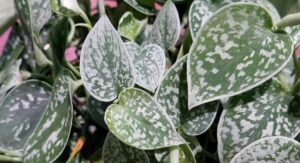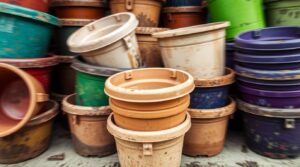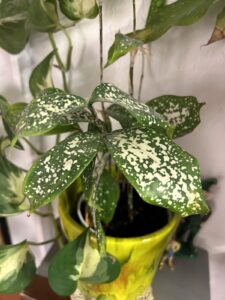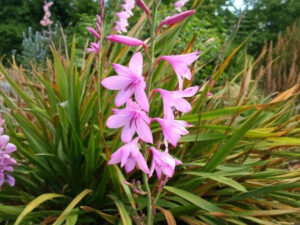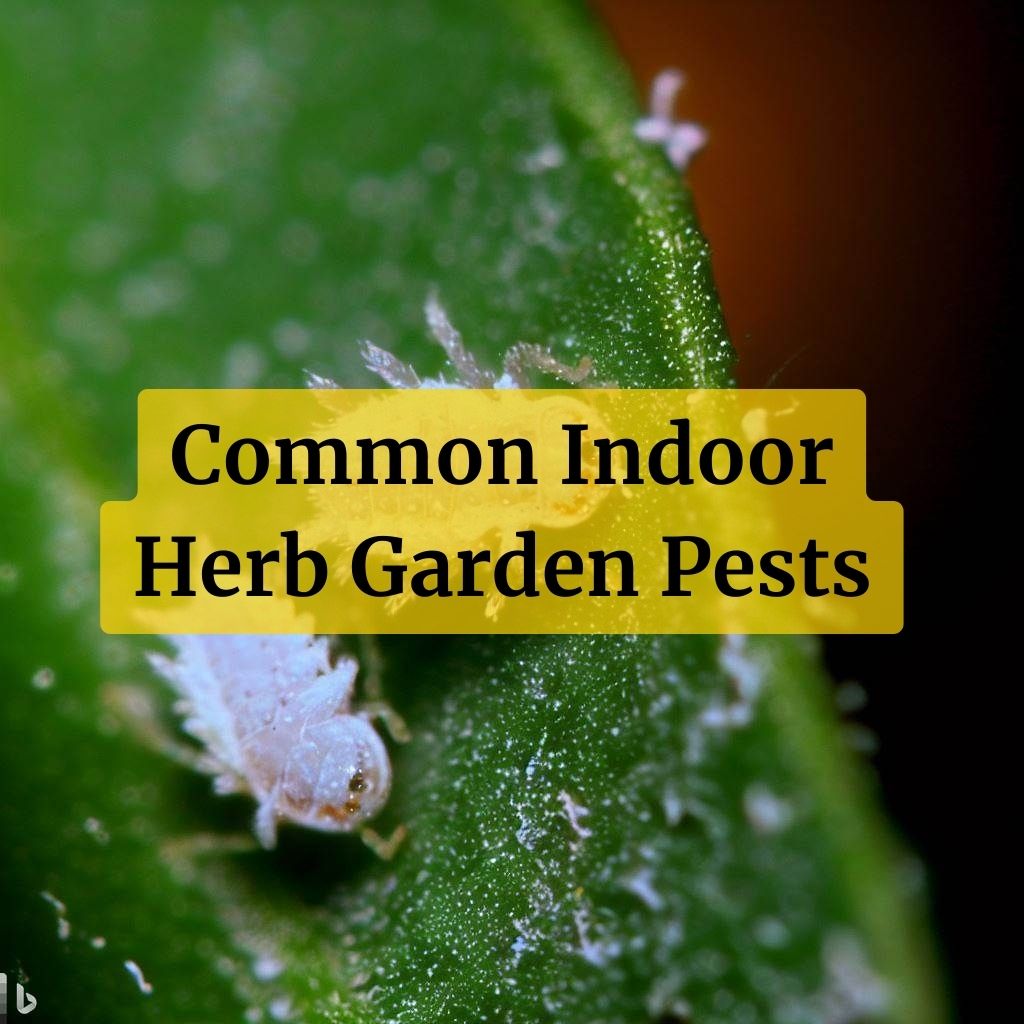
Discover the common pests that can plague your indoor herb garden and how to keep them at bay. In this comprehensive guide, we’ll explain how to protect your indoor herb garden from pests, ensuring your herbs thrive and stay pest-free.
In this article
- 1 Natural and Organic Pest Control Methods
- 2 Prevention and Maintenance Tips
- 3 How to Identify and Treat Common Pests in Indoor Herb Gardens
- 4 Plant Herbs that Help Repel Pests
- 5 3 Types of Sprays to Use to Control Pests on Your Herbs
- 6 Plant Flowers That Attract Beneficial Insects
- 7 Mix Some Onions into the Garden Bed
- 8 Spray Insecticide as a Last Resort
Aphids
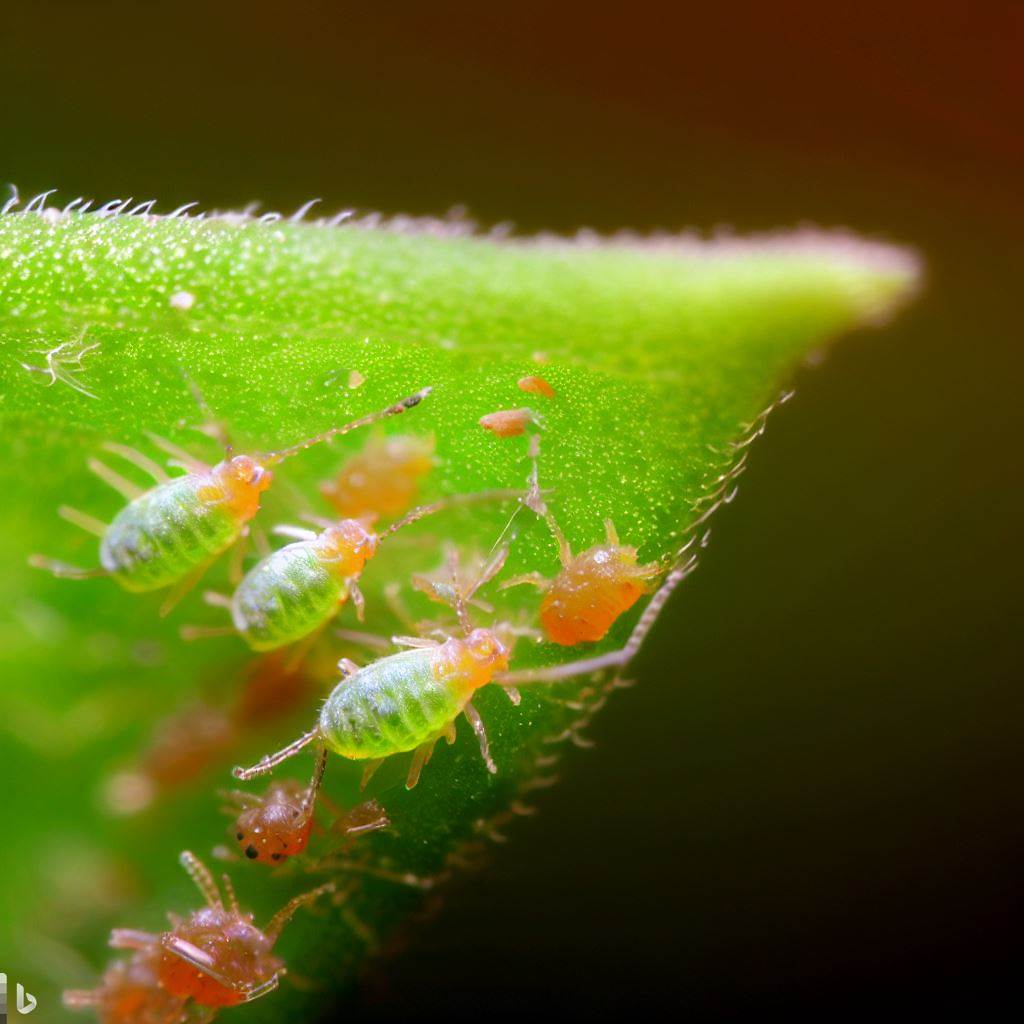
These tiny, pear-shaped insects love to feast on your herb’s tender leaves. They come in various colors, from green to brown to pink, and can reproduce rapidly, turning your herb garden into a breeding ground.
Spider Mites
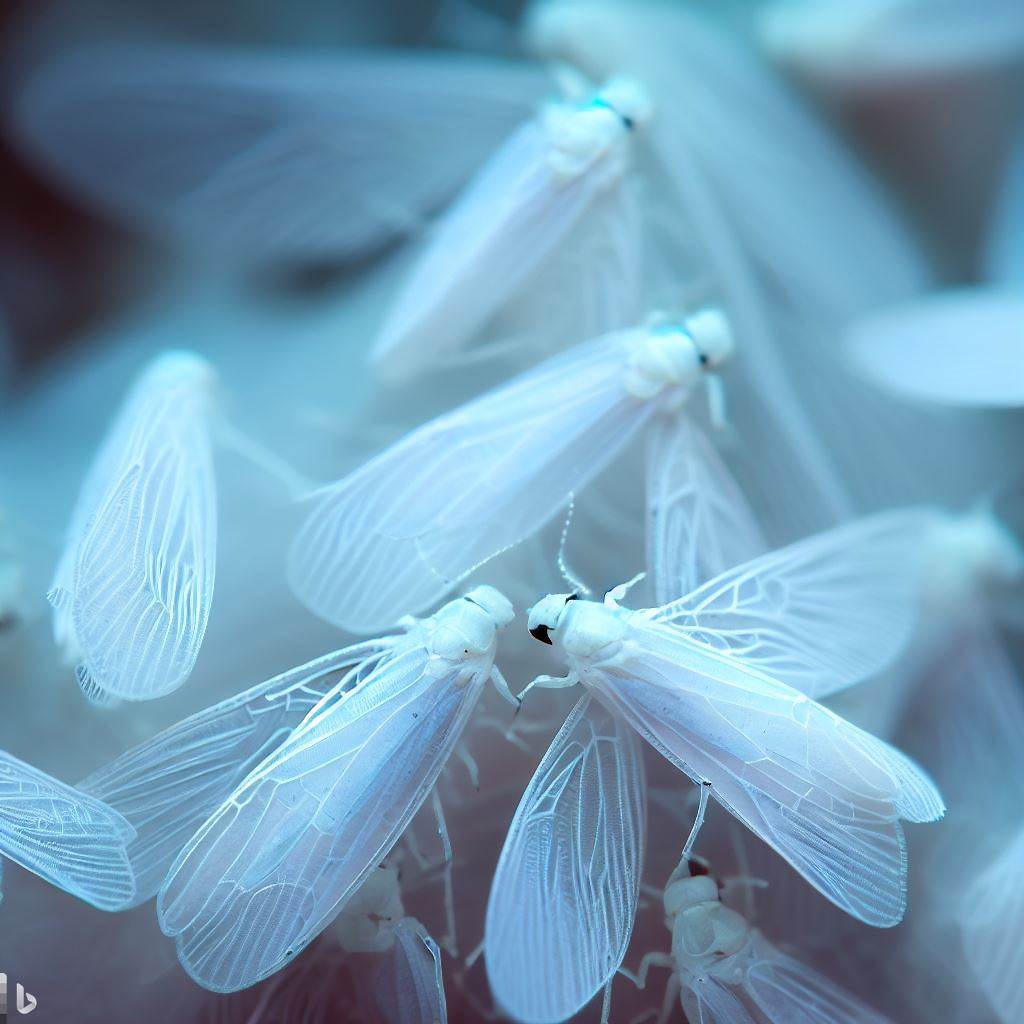
No, they aren’t spiders, but they are tiny arachnids that can wreak havoc on your herbs. They spin fine webs and feed on plant sap, leaving your herbs looking sickly.
Whiteflies
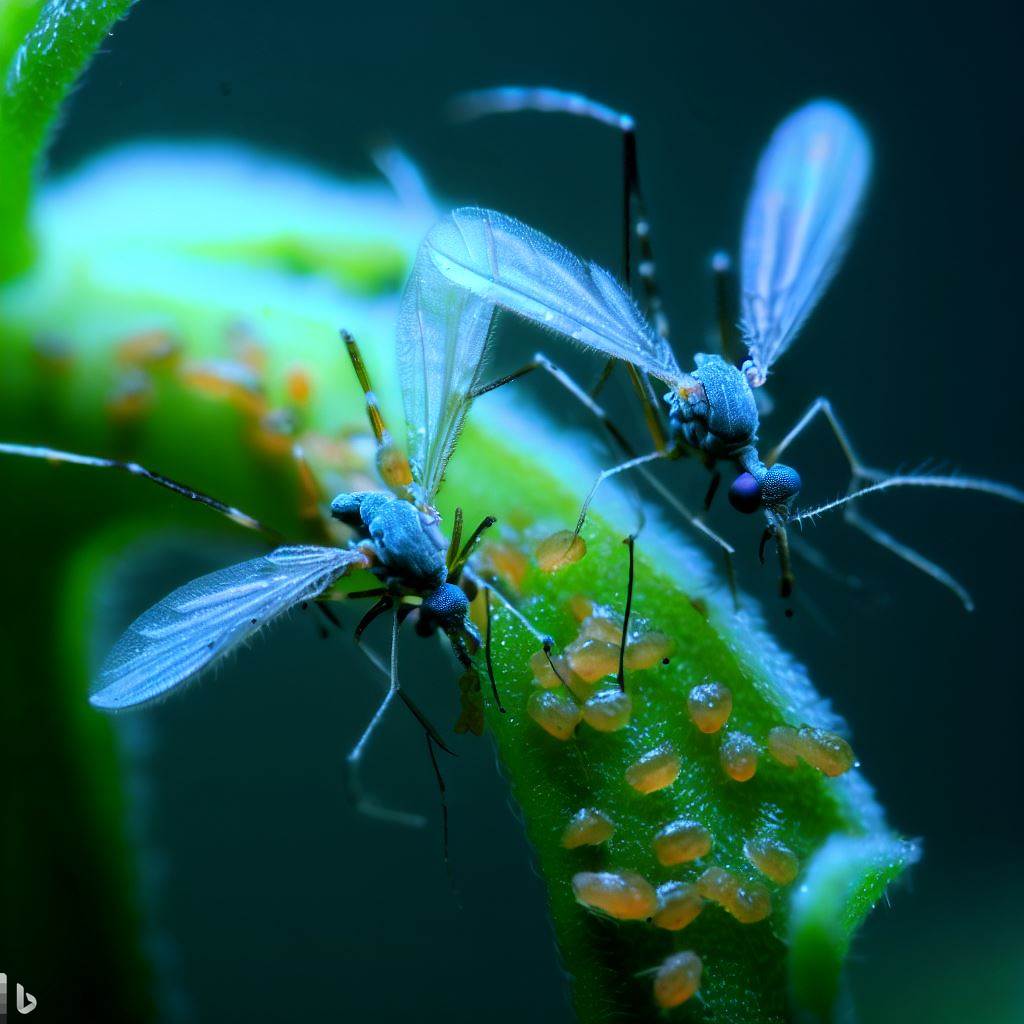
These tiny, white insects are notorious for their love of herbs. They feed on the underside of leaves, sucking out plant juices and leaving behind a sticky residue.
Fungus Gnats
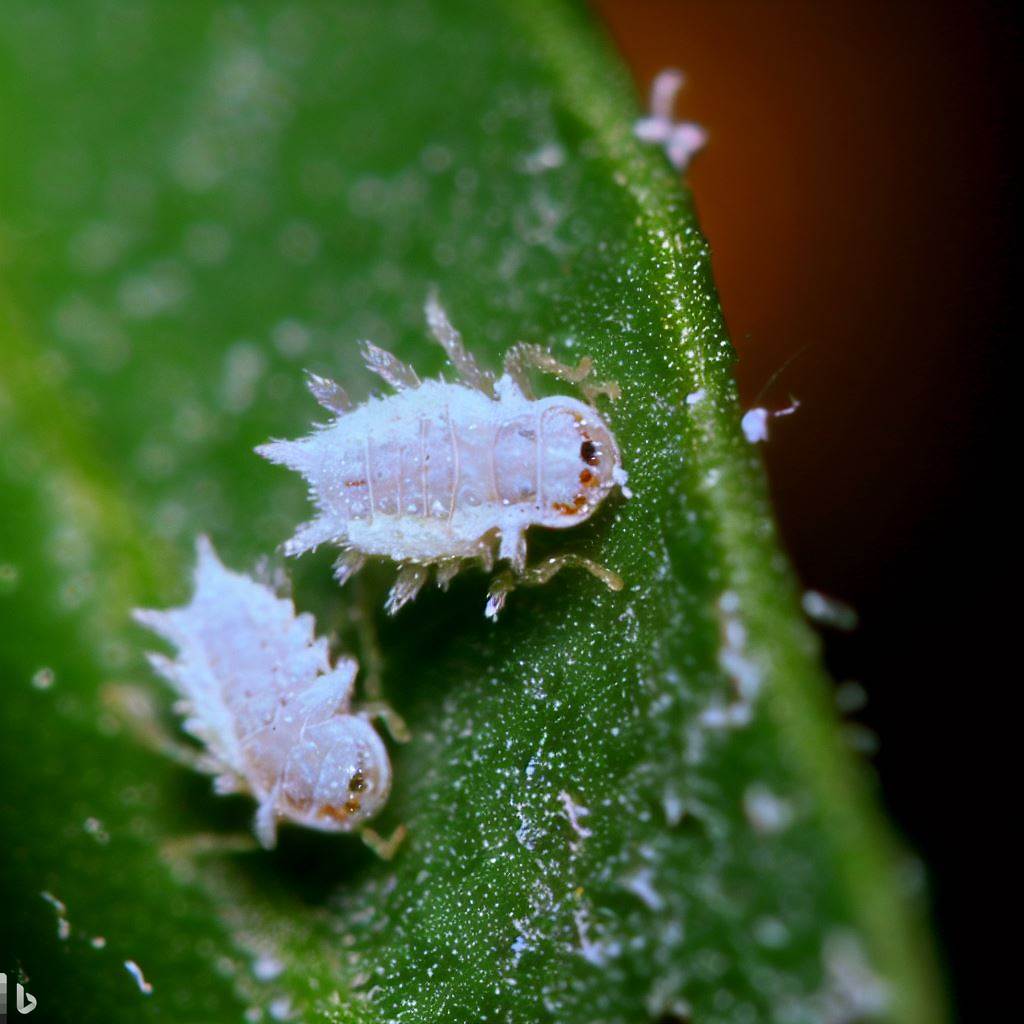
These annoying little flies lay their eggs in the soil of your herb pots. Their larvae feed on plant roots, causing damage and stunting growth.
Mealybugs
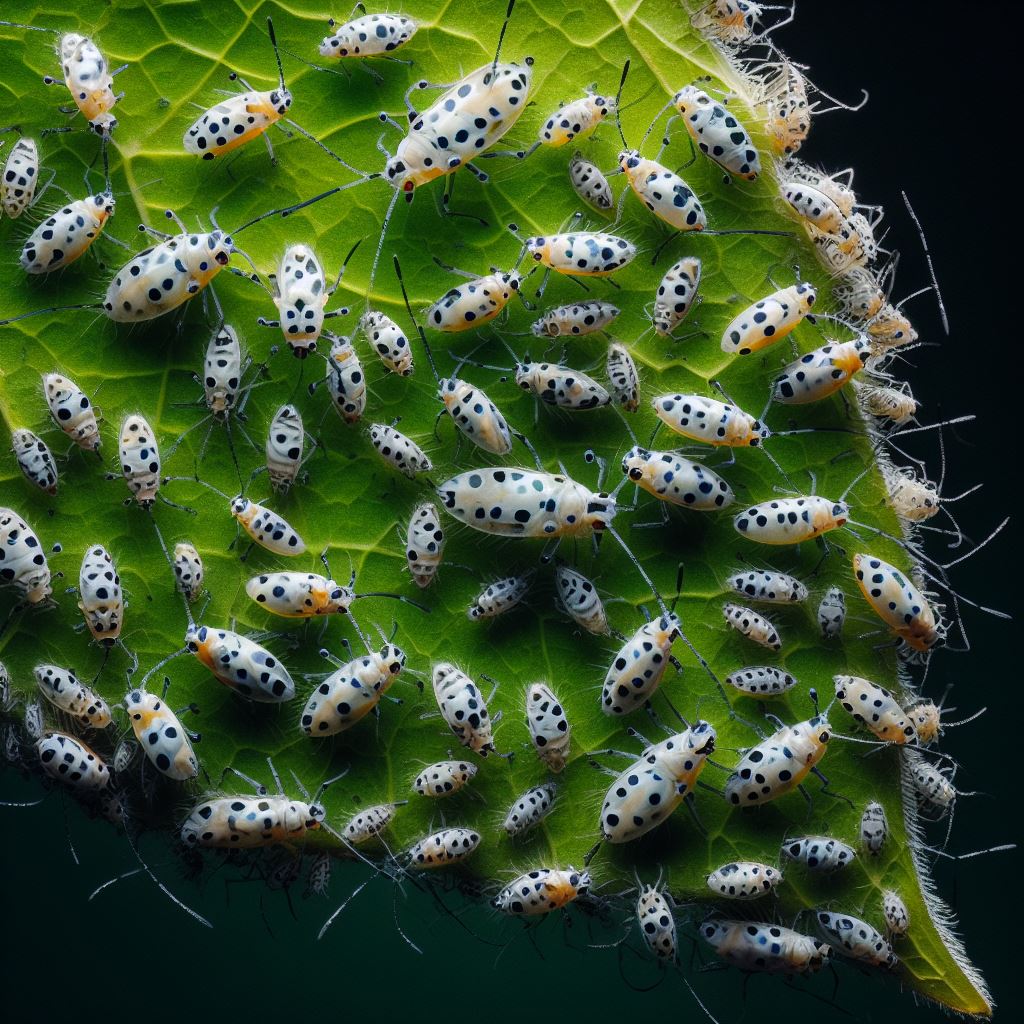
Mealybugs are small, soft-bodied insects that resemble tiny cotton balls. They can infest your herbs and weaken them by sucking out plant sap.
Now that we’ve met our foes let’s explore some effective ways to combat them.
Natural and Organic Pest Control Methods
Neem Oil
Neem oil is a natural pesticide that can effectively control a wide range of herb garden pests. Its active ingredients disrupt the insect’s hormonal balance, making it an excellent choice for organic gardening. Simply mix a few drops of neem oil with water and spray it on your herbs.
Diatomaceous Earth
Diatomaceous earth is a powdery substance made from fossilized aquatic organisms. It works by damaging the exoskeleton of insects, dehydrating and ultimately killing them. Sprinkle a thin layer of diatomaceous earth on the soil’s surface in your herb pots.
Do you know your parsley from your cilantro?
Take these 6 easy questions and test your herb knowledge.
Have fun!
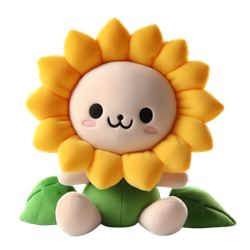
Question
Your answer:
Correct answer:
Your Answers
Beneficial Insects
Introducing ladybugs, lacewings, and predatory mites into your indoor herb garden can be a game-changer. These beneficial insects feast on herb-devouring pests, helping to keep your garden balanced and healthy.
Companion Planting
Certain herbs and plants can act as natural repellents for pests. For example, basil is known to repel flies and mosquitoes. Planting basil alongside your other herbs can help deter unwanted visitors.
Prevention and Maintenance Tips
Prevention is often the best defense against indoor herb garden pests. Here are some tips to keep your herb garden pest-free:
- Inspect Regularly: Make it a habit to inspect your herb garden regularly for any signs of pests. Early detection can prevent an infestation from spreading.
- Keep it Clean: Remove dead leaves, debris, and fallen herbs from your garden. Pests often hide in these areas.
- Proper Watering: Overwatering can create conditions that attract pests. Water your herbs only when the top inch of soil is dry.
- Well-Draining Soil: Use well-draining soil to prevent excess moisture, which can invite pests.
- Isolation: If you bring in a new herb, isolate it for a few weeks to ensure it’s not carrying any pests.
- Quarantine Affected Plants: If you spot a pest-infested herb, quarantine it immediately to prevent the infestation from spreading.
How to Identify and Treat Common Pests in Indoor Herb Gardens
Identifying pests early is crucial for effective treatment. Here’s a brief guide on how to recognize and treat some common indoor herb garden pests:
Aphids
Look for clusters of tiny, pear-shaped insects on the leaves. To treat, spray with a mixture of water and dish soap or neem oil.
Spider Mites
Check for fine webs on the leaves and tiny, yellowish or red-brown mites. Use a strong spray of water to dislodge them, or try neem oil.
Whiteflies
Inspect the undersides of leaves for tiny, white insects. Use neem oil or introduce beneficial insects like ladybugs.
Fungus Gnats
Look for small, black flies around your herbs. Let the soil dry out slightly and use yellow sticky traps to catch adult gnats.
Mealybugs
Spot cottony masses on your herb leaves? These are mealybugs. Remove them with a cotton swab dipped in rubbing alcohol.
Plant Herbs that Help Repel Pests
Nature has its way of protecting itself, and you can harness this power in your herb garden. Consider planting herbs that naturally repel pests:
1. Basil
Basil not only adds flavor to your dishes but also helps to deter flies and mosquitoes. Plant it near your other herbs to keep flying pests at bay.
2. Mint
Mint is a fantastic herb for pest control. Its strong aroma repels ants, aphids, and even mice.
3. Chives
Chives can repel aphids and Japanese beetles. Plus, they make a delicious addition to salads and soups.
3 Types of Sprays to Use to Control Pests on Your Herbs
When it comes to pest control, a well-timed spray can make all the difference. Here are three types of sprays you can use to protect your indoor herb garden:
Water Spray
A simple water spray can help dislodge many pests from your herb plants. Use a hose or a spray bottle to gently wash the leaves and stems of your herbs. This can be particularly effective against aphids and spider mites.
Garlic Spray
Garlic isn’t just for cooking; it can also be a potent pest deterrent. To make garlic spray, blend garlic cloves with water, strain the mixture, and then dilute it further with water. Spray this solution on your herbs to keep pests away.
Liquid Soap Spray
A mixture of mild liquid soap and water can help control aphids, mealybugs, and other soft-bodied pests. Make sure to use a gentle, chemical-free soap and dilute it before spraying it on your herbs.
Plant Flowers That Attract Beneficial Insects
While repelling pests is important, attracting the right allies can also help maintain a balanced ecosystem in your indoor herb garden. Here are some flowers that can draw beneficial insects:
Marigolds
Marigolds not only add a splash of color to your garden but also attract ladybugs, which are natural predators of aphids and other herb-devouring pests.
Lavender
Lavender’s fragrance is a magnet for pollinators like bees and butterflies. These insects can help pollinate your herbs and maintain a healthy garden.
Nasturtiums
Nasturtiums not only look pretty but also attract aphids and whiteflies away from your herbs, acting as sacrificial plants.
Mix Some Onions into the Garden Bed
Onions are not just a kitchen staple; they can also serve as a natural pest repellent. Planting onions among your herbs can deter pests like aphids and spider mites.
Spray Insecticide as a Last Resort
Insecticides should be your last line of defense. If all else fails and your indoor herb garden faces a severe infestation, consider using a mild insecticide. Ensure it’s safe for edible plants, and follow the instructions carefully.
Nurturing your indoor herb garden is a rewarding experience, but it comes with the responsibility of protecting it from pests.
By following the natural and organic methods mentioned above, you can create a thriving, pest-free herb garden that not only enhances your culinary adventures but also adds a touch of greenery to your home.
Remember, a little extra care and vigilance go a long way in keeping your indoor herb garden healthy and pest-free.
Do you REALLY know your gardening?
Take this quiz to see if you are a gardening expert.
These 6 questions are really tough!! Good luck!

Question
Your answer:
Correct answer:
Your Answers
Happy gardening!
Frequently Asked Questions
Are there any specific herbs that are more susceptible to pest infestations than others?
Yes, some herbs are more susceptible to pest infestations than others. Basil and mint, for example, are often targeted by pests such as aphids and spider mites. However, susceptibility can vary based on environmental factors and the specific pests prevalent in your area
Can indoor pests affect the taste and quality of the herbs?
Yes, indoor pests can indeed affect the taste and quality of your herbs. Pests like aphids, mealybugs, and spider mites feed on the sap of plants, weakening them and causing visible damage such as yellowing leaves, stunted growth, and reduced herb flavor. Some pests can also leave behind a sticky residue, affecting the texture and appearance of the herbs. In severe infestations, herbs may become unpalatable or unsuitable for culinary use.
Can I use chemical pesticides in my indoor herb garden?
It’s best to avoid chemical pesticides, as they can harm both your herbs and your health. Opt for natural and organic pest control methods first.
How often should I inspect my indoor herb garden for pests?
Regularly inspect your herb garden at least once a week to catch any pest infestations early.
What should I do if my herbs are already infested with pests?
If you discover an infestation, isolate the affected herbs, treat them with appropriate methods, and keep a close eye on neighboring plants to prevent the spread.
Are there any herbs that pests particularly love?
Yes, herbs like basil and mint are often targeted by pests. That’s why it’s essential to take preventive measures.
Can I use essential oils as a pest deterrent?
Yes, some essential oils like peppermint, lavender, and eucalyptus can help deter pests. Dilute them with water and spray them on your herbs.
